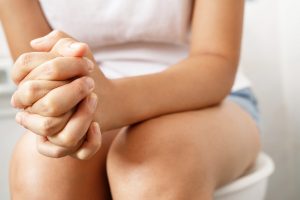 Everybody has been in a situation where they’ve really got to go. Maybe you’ve gone beyond the point of crossing your legs and are squirming in a battle to keep your bladder from releasing.
Everybody has been in a situation where they’ve really got to go. Maybe you’ve gone beyond the point of crossing your legs and are squirming in a battle to keep your bladder from releasing.
For most, this happens occasionally. Maybe you’re at a play or an event when getting to a bathroom can present a challenge. But for others, that feeling is a regular occurrence.
Advertisement
Some even struggle to keep urine inside when they sneeze or laugh.
Urinary incontinence – the struggle to control the bladder resulting in involuntary urination – can severely affect a person’s quality of life. Data shows that people with the condition often avoid social gatherings, have a higher likelihood of UTI and genital skin irritation, and have a higher risk of clinical depression.
There are two main types of urinary incontinence: urgency and stress.
Urgency incontinence is also called an overactive bladder. Those who have it tend to go to the bathroom more than eight times per day, often getting up overnight to go.
About 2/3s of people with an enlarged prostate will have urgency incontinence symptoms. It can also happen to people with Parkinson’s or those who’ve had a stroke, but most people with it have no underlying conditions. It may also be caused by obesity or constipation.
Advertisement
Stress urinary incontinence is when leakage is caused by laughing or sneezing. Essentially, bladder muscles that hold in urine become so weak that they cannot handle any added pressure. In women, it is largely seen in the context of childbirth, while men may get it from prostate surgery complications.
There are no real treatments for stress incontinence. However, some approved drugs and behavior modifications may help treat urgency incontinence.
Pelvic floor exercises, also called Kegel exercises, are one way to strengthen bladder muscles to enhance bladder control. Some behavioral techniques include:
- Avoiding known bladder irritants like caffeine, carbonated beverages, alcohol, or spicy or acidic food
- Creating a urine schedule
- Limiting evening fluids
